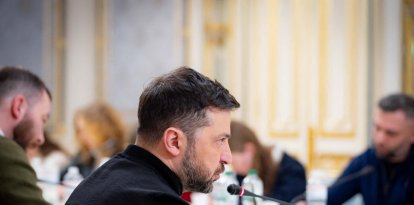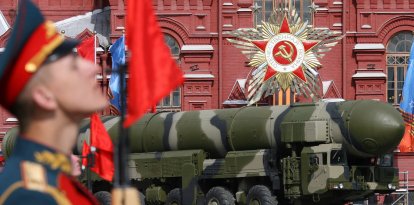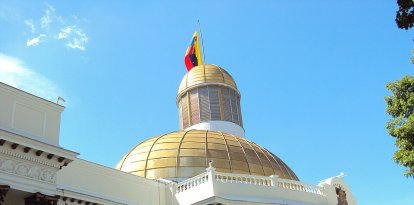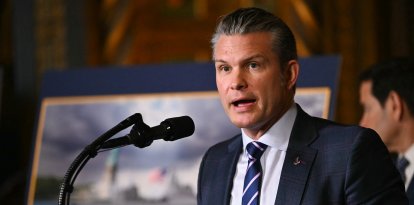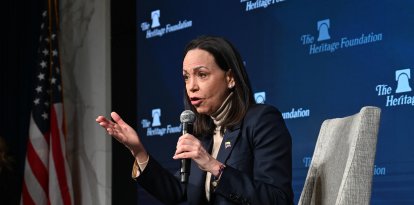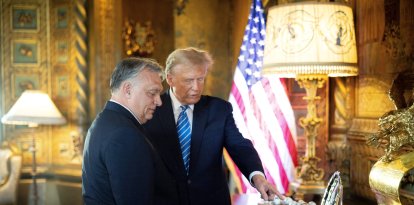Hope, uncertainty and fear in the Middle East and among Christians in Syria about the next steps of the rebels after the fall of Assad
The main countries in the region are reinforcing their borders and are showing caution until they see the first steps of the victors, while calling for the protection the population.
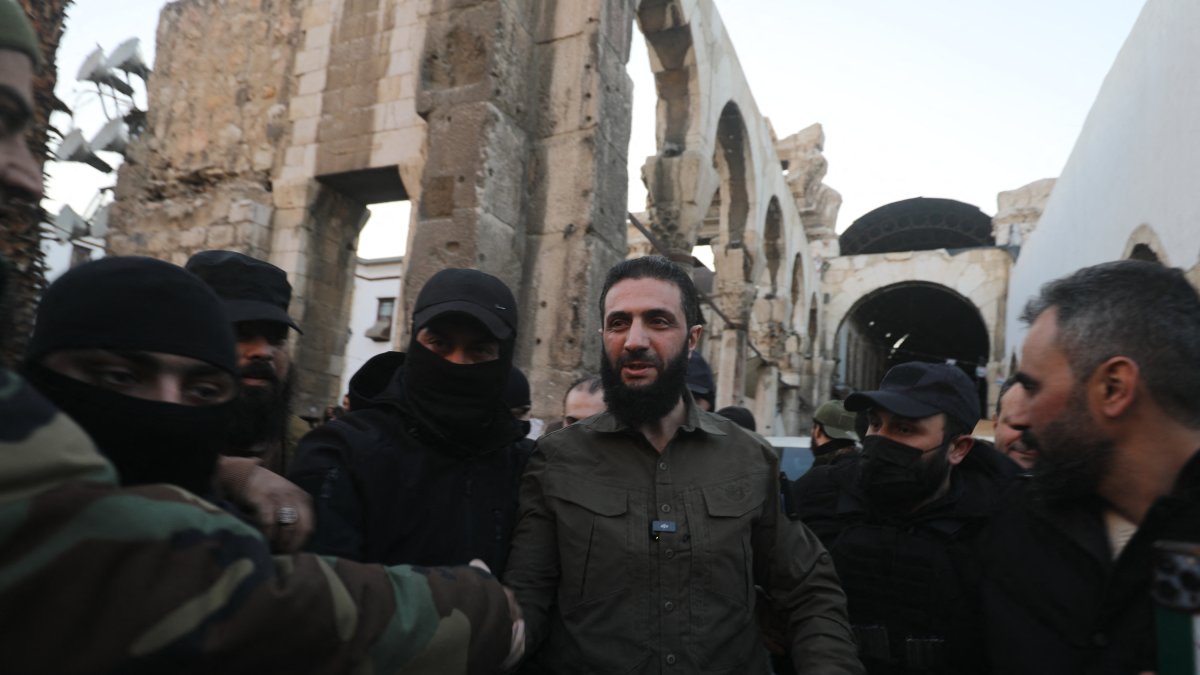
Rebel leader addresses citizens from Damascus.
The joy and hope of Syrians who celebrated the fall of Basher Assad cannot overshadow the uncertainty and even fear of key players in the region following the rebel victory. The Israel Defense Forces deployed to the Syrian border in anticipation of the chaos the political change will cause and targeted key positions in the country to prevent strategic weapons from falling "into hostile hands." Christians in Aleppo, persecuted by the dictatorship, are wary of the arrival of Golani - who has promised them that they are safe - and his people to power for fear of a repeat of persecutions similar to previous times at the hands of jihadists.
The population celebrated the fall of tyranny with enthusiasm, destroying statues of the Assad family and roaming the streets of Damascus and Syria's main cities. The demonstrators, moreover, stormed the presidential palace. Iran denounced that its own embassy was also attacked, although the diplomats had previously left it. In anticipation of possible unrest, the rebels imposed a curfew until Monday night.
Celebrations in Damascus with storming of the presidential palace and the Iranian embassy
In the country's capital, dozens of people gathered in Umayyad Square, to celebrate the fall of the Assad clan after more than half a century in power, in a country divided by a deadly civil war, AFP reports. In another central square, amid shouts of "Allahu Akbar" ("God is the greatest"), dozens of residents toppled a statue of Hafez al-Assad, Bashar's father, and trampled it underfoot.
"Syria is ours, it doesn't belong to the Assad family," shouted armed men, members of rebel groups, who circulated through some streets of the city firing shots in the air. The regime's soldiers hastily removed their Syrian army uniforms as they left the headquarters of the General Staff in Umayyad Square, several residents told the French news agency. The premises of the public television and radio stations were also abandoned by the officials, said a former employee.
Syrian refugees celebrate around the world
Celebrations echoed all over the world where there are Syrian refugees. This is the case in Istanbul, where a crowd of the three million displaced people in Turkey by the repression of the Baath party regime gathered in front of the great mosque in the Fatih neighborhood despite the heavy rain. "It's incredible, we have the feeling of being reborn," Sawan Al Ahmad, who was holding her son's hand, commented in Istanbul. Now, she is looking forward to taking her son "to his homeland."
Countries in the area are also experiencing the situation with mixed feelings. In Israel, Prime Minister Benjamin Netanyahu was quick to order the army to deploy in the so-called "buffer zone" with Syria. Subsequently, the IDF indicated that it launched several airstrikes to prevent weapons falling into hostile hands.
Israel reinforces border and attacks targets in Syria
In addition, Israel's message to the rebels as rebel forces began to approach the border between the two countries was blunt: "Do not turn in our direction." In response, speaking to the Times of Israel, one of the victors' leaders noted:
"We are open to friendship with all countries in the region, including Israel. We have no enemies other than the Assad regime, Hezbollah and Iran. What Israel did against Hezbollah in Lebanon helped us a lot. Now we take care of the rest. We thank Israel for its attacks against Hezbollah and against Iranian infrastructure in Syria, and we hope that after the fall of Assad, Israel will plant a rose in the Syrian garden and support the Syrian people, for the benefit of the region. Syrian citizens are the ones who will remain on Israel's borders. Not Bashar al-Assad or the Iranians."
He further invited Netanyahu to "not stand idly by and think that this will not affect him. Israel should consider attacking Iranian-backed forces wherever it sees them." For this reason, he even invited Israeli soldiers to "act from the air."
Lebanon, Iran and Iraq, on the lookout
Like Israel, Lebanon rushed to deploy military troops to the border in anticipation of trouble in the area. Iraq evacuated its embassy staff by road to the country. "The embassy staff in Damascus, consisting of ten employees, including the head of the diplomatic mission, has been evacuated to Beirut by road," said a senior diplomatic official in Baghdad, specifying that this decision was made due to "the total withdrawal of the Syrian army" and "the lack of security."
Iran, for its part, and despite denouncing the storming of its embassy, made a call to "maintain friendly ties" with the new leadership, although the Foreign Ministry affirmed that Tehran "will adopt appropriate approaches and positions" regarding Syria, "taking into account the behavior and actions of the effective actors" in Damascus.
Christians fear for their future with jihadists despite their pledges
However, Avveduto notes fear is what occupies most Christian hearts in the region: "The situation is confusing. We don't know what is going to happen. People from outside cannot get to Aleppo because it is closed and occupied. Many of the Christians and other religious minorities fear for their future. Many remain locked in their homes out of fear."













